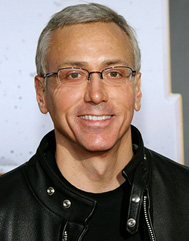Why We Need The Sunshine Act: Part 2
October 21, 2012
"The happy, horny, skinny pill"
In Part One, we discussed the $3 billion settlement that the U.S. government recently made with pharmacological giant GlaxoSmithKline, and Dr. Karen Wagner who, as a highly paid consultant for GSK, helped GSK to fraudulently market Paxil for use on children.
Wagner, an academic in the area of child psychiatry, is best known only to her colleagues, and GSK used her to persuade other psychiatrists that Paxil was safe and effective for use with children and teens. But GSK was happy to use not just academics, but “pop docs” as well in its determination to increasingly expand the market for its products.
Take, for example, Wellbutrin, an anti-depressant that in 1999 was past its peak marketing time and no longer the next big thing. The FDA had only approved the drug for a single use: treatment of Major Depressive Disorder in adults eighteen years of age or older.
Looking for new ways to market Wellbutrin, GSK decided not to go with new clinical research or expanded studies (which are, after all, expensive, and as we have seen from the Paxil studies, can lead to disappointing results). Instead, for its next marketing gambits, GSK turned to some promising accidental research and what can best be termed Urban Legend. One diet doctor noticed that his depressed, obese patients who were taking Wellbutrin seemed to have an easier time losing weight than other obese patients, and other doctors reported that patients on Wellbutrin did not seem to complain as much about sexual dysfunction as did those taking some other anti-depressants.
This combination of fortuitous events gave the GSK marketing team the perfect slogan for its sales reps to use with doctors: Wellbutrin is “the happy, horny, skinny pill.” According to documents reluctantly revealed by GSK:
“In 1998 and 1999 and through at least 2002, GSK used media plans as part of its marketing strategy to promote [Wellbutrin]. These media plans were designed to ‘create a buzz’ and to publicize off-label uses of [Wellbutrin], such as for weight loss or sexual dysfunction in depressed patients.”
Dr. Drew Pinsky: was he shilling Wellbutrin as a sex aid?

“Dr. Drew” is a board-certified psychiatrist-turned-pop-doc, thanks to his long-running radio show Loveline, on which he gives advice about relationships and sexual issues to anyone desperate or curious enough to call him for an on-air consultation. He’s been making headlines ever since the government’s complaint against GSK and its supporting documents became public, and probably not in the way he intended.
You see, Dr. Drew went onto GSK’s payroll specifically to promote that “happy, horny, skinny pill,” and in a big way. When a caller to his radio program claimed to have experienced 60 orgasms in one night, Dr. Drew responded immediately that she was probably on medication – in fact, that an anti-depressant such as Wellbutrin was the likely source of her repeated joy.
Dr. Drew has merely issued a statement saying his comments about Wellbutrin were based on his own clinical experience. Really? And the $275,000 that he had just received from GSK had nothing to do with it?
The facts speak for themselves. Here’s the timeline:
March 31, 1999: GSK’s public relations firm, Cooney/Waters (hired for the Wellbutrin Media Plan), invoices GSK on Dr. Drew’s behalf for “Services for Wellbutrin,” seeking the “first installment” of an “Honoraria” in the amount of $100,000. The invoice is sent “Attn: Holly Russell.”
April 30, 1999: A second invoice from Cooney/Waters to GSK’s Russell is sent on Dr. Drew’s behalf, again for “Services for Wellbutrin,” this time billing a “second installment” of an “Honoraria” in the amount of $175,000.
May 22, 1999: Dr. Drew joins David Essel on a national radio program about sexual intimacy and depression. The lead-off call into the program is from a woman, aged 34, who claimed to have experienced 60 orgasms in a single night. When questioned about this, Dr. Drew asserts that this was not necessarily an uncommon experience, and such a change in the woman’s sexual libido was probably caused by the woman’s medication.
Essel asks: “What type of a medication would increase someone’s orgasmic potential where they go from three or four to 60?”
Dr. Drew responds: “Interestingly lots of the antidepressants, but the one that I have most … I’ve seen that from in my clinical practice is [Wellbutrin] or Buproprion [“Buproprion” is the scientific name for Wellbutrin]. It actually is the one we advocate, one of the things we suggest people do if they’re getting decrease in their libido or decrease in their arousal from an antidepressant ….”
June 2, 1999: GSK’s Holly Russell receives an internal memo about Dr. Drew’s performance on the Essel show, stating in part:
“Dr. [Drew] Pinsky recently joined David Essel on his national radio program to talk about intimacy and depression. During the fifteen-minute segment, Dr. Pinsky communicated key campaign messages. Highlights included:
"Switching to or adding Wellbutrin is recommended for people experiencing a loss of libido..."
Part 3: The “Fat Doctor” shills Wellbutrin as that “skinny” pill
